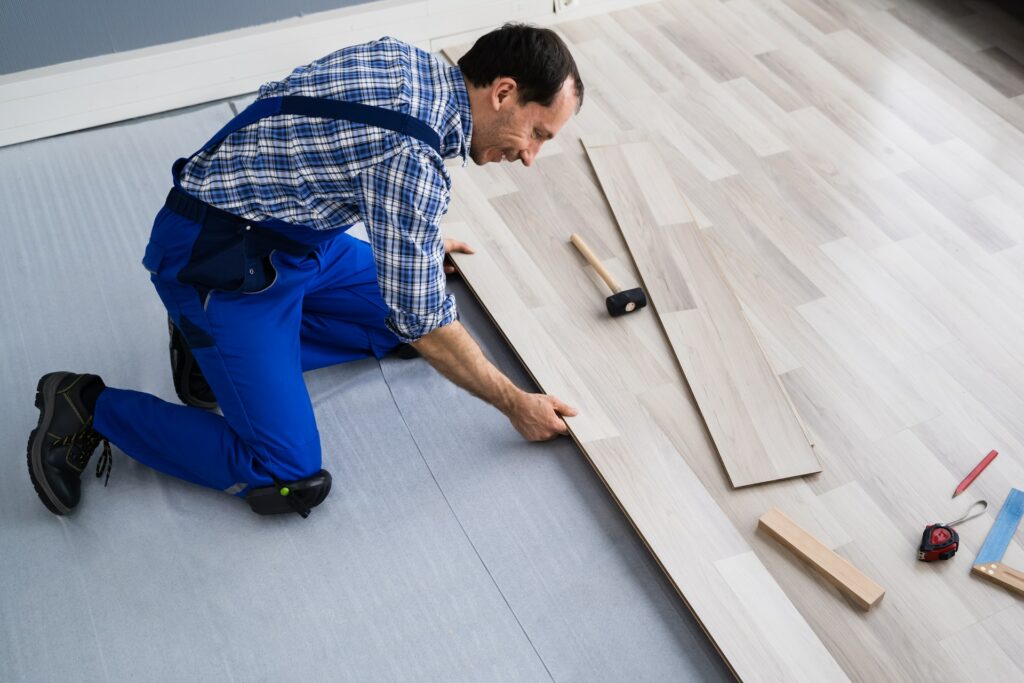Implementing energy-efficient solutions in your home remodeling or restoration project not only demonstrates a commitment to environmental sustainability but also helps you save on utility bills and enhance the comfort of your living space. With the increasing availability of eco-friendly materials, technologies, and design strategies, homeowners have countless opportunities to create sustainable homes that cater to their needs and preferences. In this article, we’ll guide you through the essential aspects of designing an energy-efficient home remodeling or restoration project, offering valuable tips and best practices for maximizing your home’s potential while minimizing its environmental impact.
From selecting energy-efficient appliances and incorporating smart home technologies to optimizing your home’s insulation and considering renewable energy sources, creating an eco-friendly living space requires careful planning, informed decision-making, and the expertise of trusted home remodeling and restoration professionals like BMR Homes Inc. Remodeling and Restoration. Their experience in combining stylish design with energy-efficient solutions ensures a seamless process and a result that aligns with your sustainability goals and expectations.
In this comprehensive guide, we’ll explore key topics related to energy-efficient home remodeling and restoration projects, including evaluating your home’s current energy performance, selecting eco-friendly materials, optimizing heating, cooling, and lighting systems, and considering renewable energy options. By following these tips and best practices, you’ll be well on your way to creating a comfortable, energy-efficient living space that not only saves you money but also contributes to a better future for our planet. Let’s begin by discussing the importance of assessing your home’s current energy performance to identify potential areas for improvement.
Evaluating Your Home’s Current Energy Performance
The first step in designing an energy-efficient remodeling or restoration project is to assess your home’s current energy performance, identifying areas that could benefit from improvements. Conduct a home energy audit, either by hiring a professional or performing a do-it-yourself assessment, to pinpoint inefficiencies and effectively target your resources. An energy audit may reveal issues such as air leaks, inadequate insulation, or outdated appliances that contribute to higher energy consumption. By addressing these areas, you can optimize your energy usage and build a solid foundation for your eco-friendly home renovation.
Selecting Eco-friendly Materials
Choosing sustainable materials for your remodeling or restoration project is an essential aspect of creating an energy-efficient home. Consider factors such as the lifecycle, recyclability, and embodied energy of materials when selecting the most environmentally friendly options. Some sustainable materials to consider include:
- Reclaimed or recycled materials: Utilize reclaimed wood or recycled metal for elements like flooring, siding, or countertops. By repurposing existing materials, you conserve resources and reduce waste in landfills.
- Low VOC products: Choose low-VOC paints, sealants, and adhesives to minimize indoor air pollution and maintain a healthy living environment.
- Insulation materials: Opt for eco-friendly insulation alternatives like cellulose, sheep’s wool, or recycled denim to improve your home’s thermal performance without sacrificing environmental integrity.
- Sustainable flooring: Consider eco-friendly flooring materials like bamboo, cork, or sustainably harvested hardwoods. These options provide durability and style while reducing your home’s environmental impact.
Optimizing Heating, Cooling, and Lighting Systems
Enhancing the efficiency of your home’s heating, cooling, and lighting systems plays a crucial role in achieving energy savings and a comfortable living environment. Implement the following strategies to optimize these systems:
- Heating and cooling: Install an ENERGY STAR-certified HVAC system and consider incorporating programmable thermostats for efficient temperature control. Proper maintenance of your HVAC system, including regular filter changes and system tune-ups, also contributes to energy efficiency.
- Windows and doors: Opt for energy-efficient windows and doors, featuring double or triple-pane glass and low-E coatings, to minimize heat transfer and air leakage. Proper installation and sealing are vital to ensure your windows and doors perform their best.
- Lighting: Switch to energy-efficient LED or CFL light bulbs and incorporate dimmer switches, timers, and motion sensors to conserve energy. Make the most of natural light by strategically placing windows, skylights, or solar tubes to illuminate your home during daytime hours.
Considering Renewable Energy Options
Incorporating renewable energy sources into your home remodeling or restoration project can significantly reduce your reliance on fossil fuels and decrease your energy expenses. Explore the following renewable energy options:
- Solar panels: Solar photovoltaic (PV) arrays harness sunlight to generate electricity, powering your home in a clean, eco-friendly manner. While the initial investment may be significant, solar panels often provide substantial long-term savings by reducing or even eliminating your electricity bills.
- Solar water heaters: Solar water heating systems use the sun’s energy to heat your home’s water supply. These systems are generally more affordable than solar PV systems and can reduce your water heating costs by up to 80%.
- Geothermal heat pumps: Tap into the earth’s natural temperature stability with a geothermal heat pump, providing efficient heating and cooling for your home. While the installation costs can be significant, the energy savings often offset the initial expense within a few years.
Conclusion
Pursuing energy-efficient home remodeling or restoration projects is a worthwhile investment that can enhance the comfort and functionality of your living space, reduce your environmental impact, and save you money in the long run. By considering the key aspects of energy-efficient design, such as evaluating your home’s energy performance, selecting eco-friendly materials, optimizing heating, cooling, and lighting systems, and exploring renewable energy options, you can create a sustainable and cozy living environment tailored to your needs and preferences.
Enlisting the expertise of home remodeling and restoration professionals like BMR Homes Inc. Remodeling and Restoration ensures that your eco-friendly vision comes to life, providing guidance and support throughout the process while delivering a high-quality, energy-efficient result that you’ll enjoy for years to come. Trust in their dedication to excellence, and experience the rewarding journey of designing your energy-efficient whole house remodeling in Hoover, AL.

